
views
- Think back on moments you consider meaningful in your life and ask yourself why they were meaningful to pinpoint what you value and what you want.
- Identify a long-term or short-term goal, then break it down into simple, achievable steps to help you make progress and find direction.
- Connect with friends, family, or a community like volunteer workers or a sports club. Social engagement is a shortcut to feeling fulfilled.
Clear your mind.
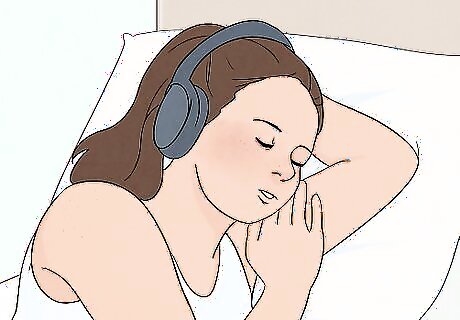
Take a few deep breaths to help you think straight. If you’re asking yourself, “What am I doing with my life?” chances are you’ve got quite the mental burden. Before you tackle that burden head-on, relax and destress so that your mind is in order and you don’t have any unhelpful thoughts rattling around up there and distracting you. Meditating is a great way to silence brain static and get focused. Sit or lie down in a dim room and play some relaxing music, or just any music you enjoy. Inhale for 10 seconds, exhale for 10 seconds. Keep breathing deeply for 5-10 minutes. Once you feel calmer, it’s time to tackle the big questions.
Think back to times when your life felt meaningful.

Remind yourself of what makes you feel fulfilled. Try to remember any moment in your life when you felt accomplished, or even just content. Then, ask yourself, what were you doing? Who were you with? Were you working toward something? Why do you think the experience was meaningful? Answering these questions will give you valuable hints as to how you might recapture that sense of meaning. For example, if you felt content because you were with someone, it may be that your key to meaning is social connections. If you felt accomplished after overcoming some sort of adversity, you might need a good challenge or goal to motivate you. Also ask yourself: When was the happiest moment of my life? What’s made me feel happy recently? Is there anything different between my life then and now?
Identify a goal.
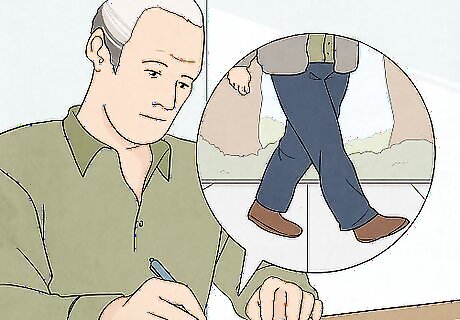
Write down something you want to strive for, and why. It could be a long-term goal, like becoming a professional artist, or even a short-term goal, like meeting new people. Whatever it is, make it something that excites you—something you want for yourself, not just something that sounds like what you think you should want. If you can’t think of anything, start with something small, like going for a walk every day, or seeing a new movie each week. Having something to look forward to goes a long way toward giving you a sense of direction. If you can, tell someone about your goal. Externalizing it makes it more real, and motivates you to work toward it. Try asking yourself these questions: What do I want to be remembered for? If I could be doing anything right now, what would it be? What do I want my life to look like in 5 years?
Make a plan to achieve your goal.
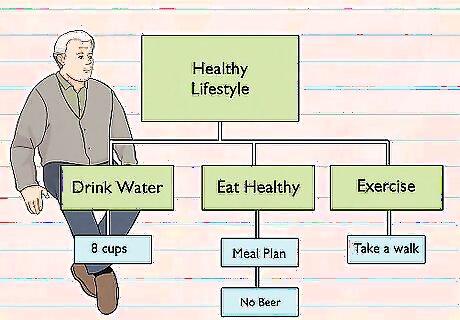
Break your goal down into simple steps. You’re not going to become a successful artist overnight, that’s why it’s a goal! But you can set aside a few minutes each day to practice, or look into classes to improve your skills. Think of what you can do right now to move toward your goal, and then what you can do after that, and after that—before you know it, you’ve got a roadmap! Making a life plan helps make your bigger goals much more approachable, which makes you more likely to follow through on them. Even making a plan for small goals helps kick your mind into problem-solving mode, getting you on your feet and feeling better.
Take steps to stick to your plan.
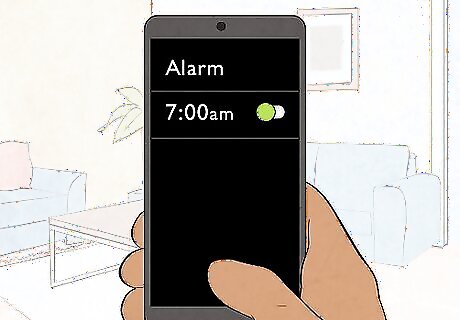
Hold yourself accountable for following through on your goal. Set an alarm on your phone to remind you to practice. Sign up for that class to make it a reality. It’s not enough to simply make a plan—follow that plan, too! Take the first step, and the second and third will follow. Once you get your feet wet and your experience starts building, you’ll find that your motivation builds, too. If you can, find a buddy to work toward your goal with. For example, say hi to someone in your class, or recruit a friend to take that walk with you every day. When you’ve got someone depending on you, you’re more likely to follow through.
Take stock of your achievements.
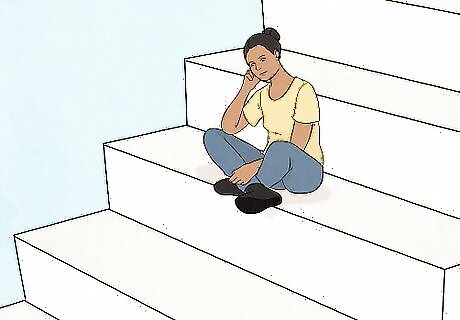
Remind yourself of how far you’ve come already. It’s easy to be down on yourself when all you’re thinking about is what you haven’t done rather than everything you’ve already overcome. Being kind to yourself is vital to feeling content and purposeful. Think back on your achievements and make a list of them, then spend some time complimenting yourself for making it so far. Your achievements don’t have to be grand. Even achievements you think are small, like landing a job or finding an apartment—even just living as long as you have—are meaningful and important. To help you identify your accomplishments, ask yourself: What makes me feel satisfied? What am I most proud of?
Think of what you’re grateful for.

Keep a gratitude journal to focus on the good things in your life. Making a conscious effort to be more grateful for the positives in your life is a proven way to boost your long-term mood. And it’s easy to do—start by writing down everything around you that you’re grateful for: your home, your friends, your next meal. Or, at the end of each day, keep a gratitude journal where you write down everything that happened to you that day that you’re grateful for, and why. For example, a journal entry might read: “Today I saw a bird I’d never seen before and stopped to admire it. I’m glad there are such interesting animals all around me to enjoy.” To help get your imagination going, ask: Who’s been kind to me recently? What’s made me smile? What makes life easier for me?
Help other people.
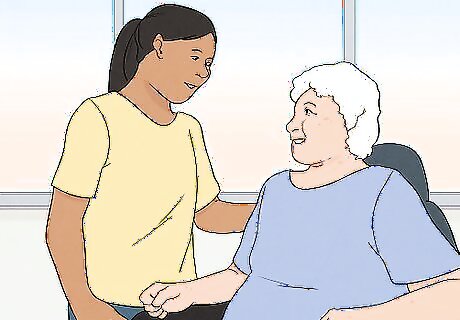
Find satisfaction by lending a hand. One powerful and effective way to lead a meaningful life is using your time to connect with and aid other people. You don’t have to start an entire food bank (though you could if you like!), but try volunteering at one for an hour or two each week. Or, sign up for a community cleanup day, where you can meet other people while doing a good deed. Making tangible change with your hands is a great way to feel purposeful. Alternatively, help feed the homeless by handing out groceries or gift cards to those in need. Or, ask your local old folks’ home if you can come in and talk with the residents. Retirement homes are often grateful for anyone looking to give some care, however small, to their clients, and the residents will appreciate a listening ear.
Take a break from social media.
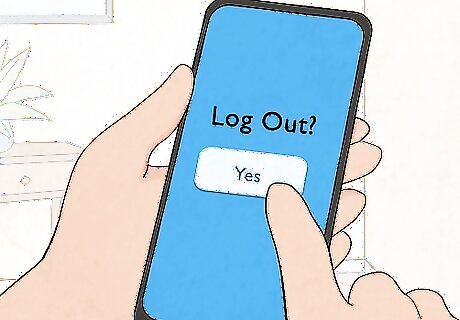
Avoid comparing yourself to others online. Social media tends to show you the best parts of other people’s lives, which can leave you feeling crummy about your own. Online, it’s easier to forget that everyone else struggles with direction and other mental health troubles from time to time. Take a social media break by logging off of Instagram, Twitter, or any other accounts for at least a week. After a week, ask yourself if your short-term cleanse helped you feel any better. If it did, do it again for another week, or consider an indefinite break. Distract yourself from checking your socials by redirecting your thoughts. Any time you feel the urge to log on, go for a quick walk around the block, make a cup of tea, lie down for a while, or even open your photos app and reminisce on your own fond memories, instead.
Travel to someplace new.

Go somewhere you’ve never been to experience new perspectives. Sometimes all you need is to expand your mind a little in order to see your possibilities. Travel is one of the best ways to do that. If you can, visit an unfamiliar country— travel solo to have a real, independent encounter with other ways of life. You’ll find that life holds more for you than you thought it could. If you don’t have the means for long-distance travel, take a day trip to a state park, or even spend a few hours in the next city over. Lives are led in all sorts of ways, all over the place, and you don’t have to go far to encounter them.
Start an exercise routine.

Exercise regularly to feel better physically and mentally. Exercising releases chemicals in the brain that, in a nutshell, tell it to stop being so down on itself and boost your mood. A little exercise, then, goes a long way to helping you feel better about yourself. You don’t need to aim for weight loss or muscle gain—the only goal you need is to get on your feet. Shoot for 30 minutes of physical activity most days, whether that’s a run, a bike ride, or just a walk through the park. Consider joining a club sports team, or even playing an active videogame that gets you moving—rhythm and dance games are great for those looking for a fun way to break a sweat.
Get a pet.

Take care of an animal to help you take care of yourself. It’s true that pets are a big commitment and a hefty responsibility. Sometimes though, that sort of commitment and responsibility are just what you need to feel like you’re doing something worthwhile. What’s more, certain pets, like dogs, can help you get outside and meet new people, which boosts your mood. If you’d rather not sign up for the lifestyle change that comes with a dog or a cat, go for something smaller, like caring for a fish or a hamster. These are hugely rewarding pets that don’t require too much maintenance. Or, if you’d rather skip the commitment, volunteer at an animal shelter. Taking care of animals in need and helping them find homes is a worthy undertaking, and a great use of your time.
See a therapist.
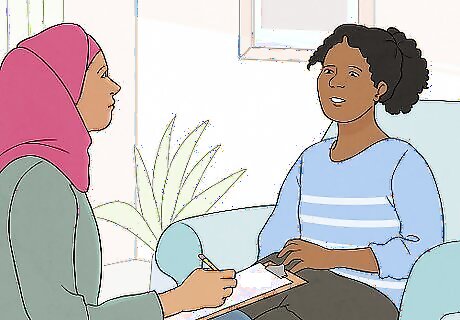
Talk to a professional about your hopes and worries. Sometimes it takes an educated, professional perspective to make sense of our own lives or untangle our feelings. There’s no shame in that! Talk to a therapist or a psychologist to chat about your mental health and explore your possibilities. Tell them that you’re feeling a bit directionless. They’ll help you determine what you want out of your life, and offer some specific, personalized ways to start pursuing it.












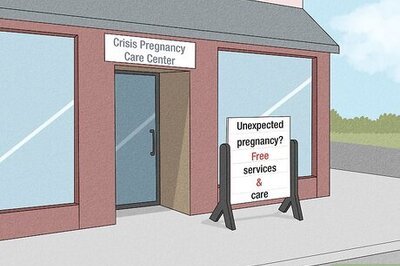
Comments
0 comment